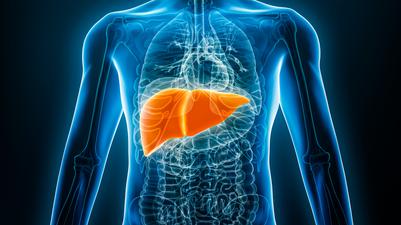Disease name: Chronic Hepatitis B
ICD-10 Disease Code: B18.1 Chronic viral hepatitis B without delta-agent,
B18.0 Chronic viral hepatitis B with delta-agent
ICD-10 Disease Group: B18- Chronic viral hepatitis
General description:Chronic hepatitis B is an inflamed state of the liver that is caused by infection with hepatitis B virus (HBV). HBV can cause both an acute (short-term) or chronic (long-term) infection. The virus spreads through contact with blood, semen and other body fluids from a HBV-infected person. The inflammation causes damage to the liver and in rare cases it can cause liver failure. Long term, it can also cause cirrhosis (scarring of the liver) and liver cancer. The virus integrates its DNA into the host genome, and thus, may remain latent for several years until reactivation.
Mutations:Not applicable. Chronic hepatitis B results from an infectious disease and is not a genetic disorder.
Disease frequency:WHO estimates that a total of 296 million people worldwide are living with chronic hepatitis B, with 1.5 million new infections each year. The frequencies vary a lot from area to area, but is most common in Eastern Asia and Africa.
Symptoms:The symptoms of acute hepatitis B include yellowing of skin and eyes, dark yellow urine, diarrhoea, fever, fatigue, nausea, joint- and abdominal pain. In chronic hepatitis B, the symptoms may not show until years after the infection has taken place, after which treatment is needed.
Treatment:Treatment of chronic hepatitis B includes oral antiviral agents such as tenofovir or entecavir. These medications selectively inhibit the viral reverse transcriptase, a crucial enzyme that the virus needs to replicate itself.
Sources:Patient Organisations:




